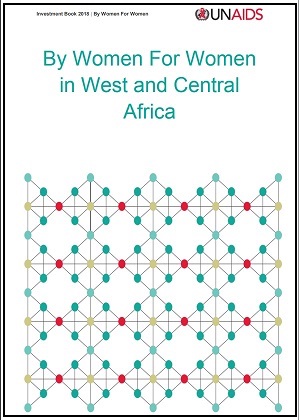
IN WEST AND CENTRAL AFRICA ONLY 50% OF WOMEN LIVING WITH HIV ARE ACCESSING TREATMENT
There is a significant lack of female engagement in national discussions about their treatment needs and options and their sexual and reproductive health and rights.
This initiative seeks to help women living with HIV – particularly young women - shape programmes and policies that have a major impact on their lives in 10 key countries in West and Central Africa: Burundi, Cameroon, Central African Republic, Côte d’Ivoire, Democratic Republic of Congo, Ghana, Nigeria, Mali, Senegal and Sierra Leone.
Having women living with HIV in their diversity more meaningfully engaged in health choices will ensure greater adherence to and sustainability of policies and programmes.
West and Central Africa Countries: By Women For Women
In West and Central Africa only 50% of women living with HIV are accessing ARV treatment and there is a significant lack of female engagement in national discussions about their treatment needs and their sexual and reproductive health and rights.
This initiative seeks to help women living with HIV be involved in shaping programmes and policies that have a major impact on their lives in 10 key countries in West and Central Africa: Burundi, Cameroon, Central African Republic, Côte d’Ivoire*, Democratic Republic of Congo, Ghana, Nigeria, Mali, Senegal* and Sierra Leone.
The By Women for Women initiative is timely given that some effective HIV medications present safety concerns during pregnancy. Ensuring that women have access to the information and support required when making decisions about their health and well-being, including sexual and reproductive health and rights and treatment choices and are able to meaningfully engage with governments and partners is critical.
The 2017 WHO Consolidated guideline on sexual and reproductive health and rights for women living with HIV supports front-line health-care providers, programme managers and public health policymakers to better address the sexual and reproductive health and rights of women living with HIV. Since publication there has been limited investment in ensuring these guidelines are understood, disseminated and implemented in countries with significant HIV epidemics.
A checklist for meaningful community engagement of women living with HIV in implementing this guideline has been developed. The checklist process takes four-six months to complete at national level and includes six specific stages and 15 steps. The planning and convening process helps determine strategic actions for implementation. Please click on the image below to download a pdf with more details.
For more information about this opportunity or others, please contact partner@unaids.org.
